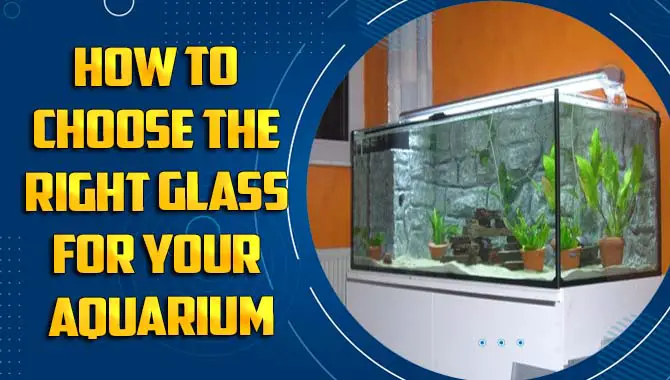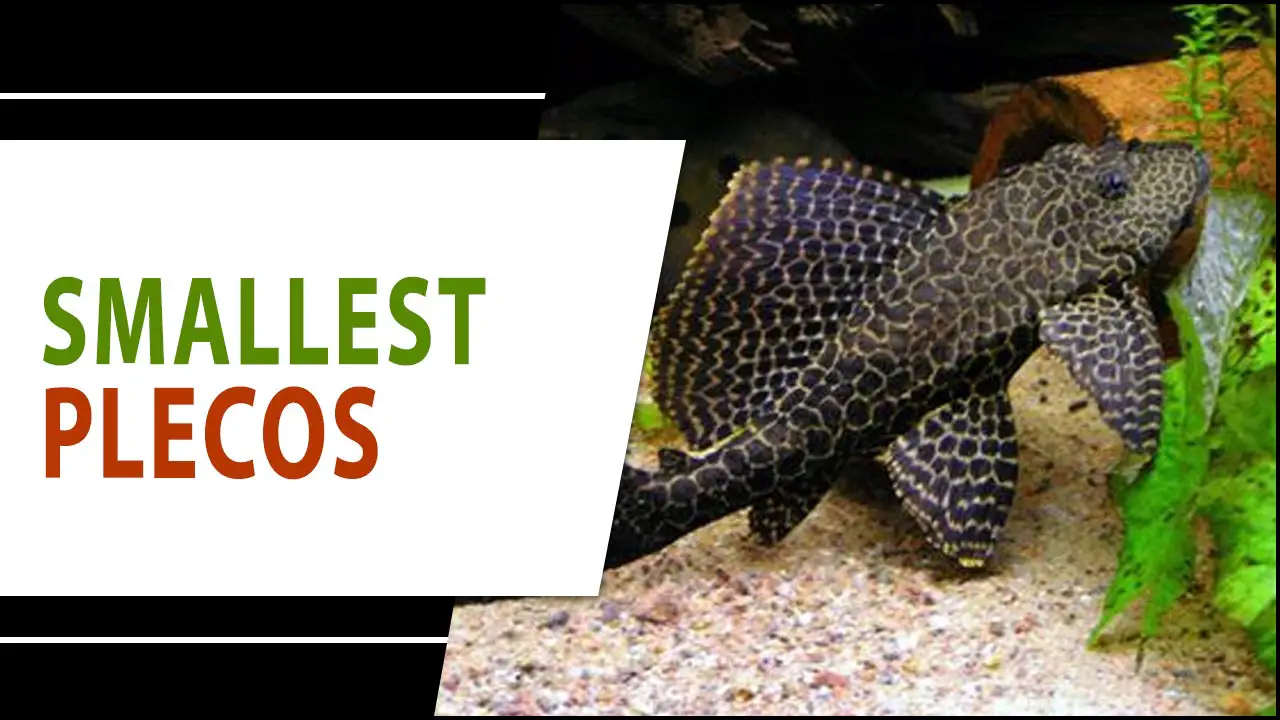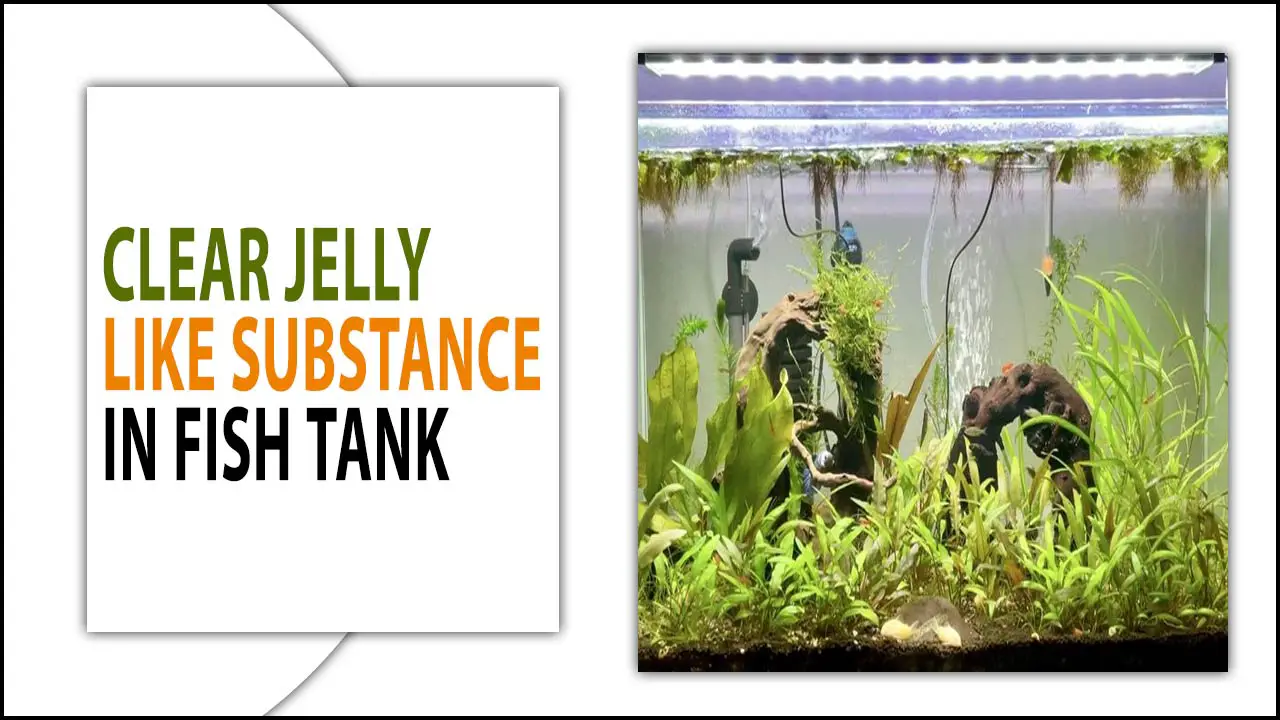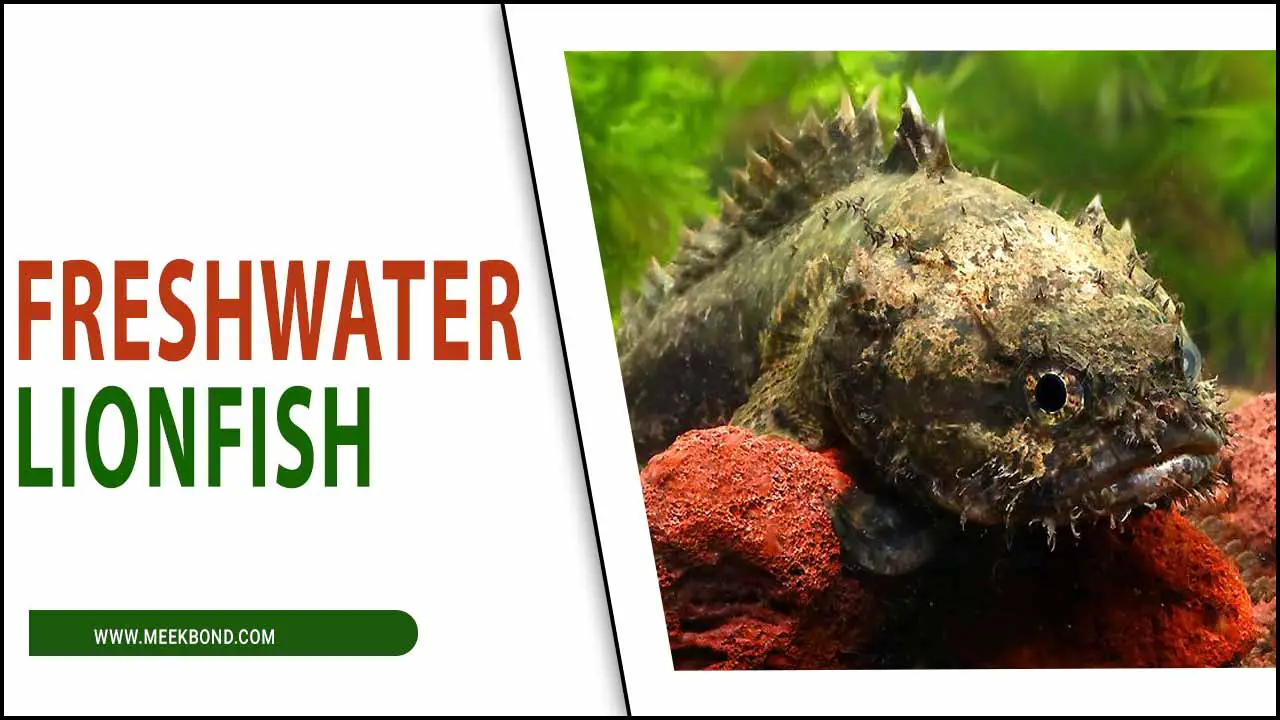As a responsible aquarium owner, one of your top priorities is keeping your aquatic environment clean and healthy for your fish. However, one issue that many aquarists face is the presence of guppy waste in their aquariums.
Although guppies are a popular and easy-to-care-for fish species, their frequent and copious defecation can quickly cause your aquarium to become unsightly and potentially hazardous to your aquatic pets. Fortunately, there are several effective measures that you can take to prevent excessive guppy pooping in your aquarium and keep your tank clean and healthy.
we will explore the most common reasons why guppies tend to poop excessively and how you can address these issues. We will also discuss some effective strategies for maintaining a clean aquarium environment and minimizing the impact of guppy waste on your aquatic ecosystem.
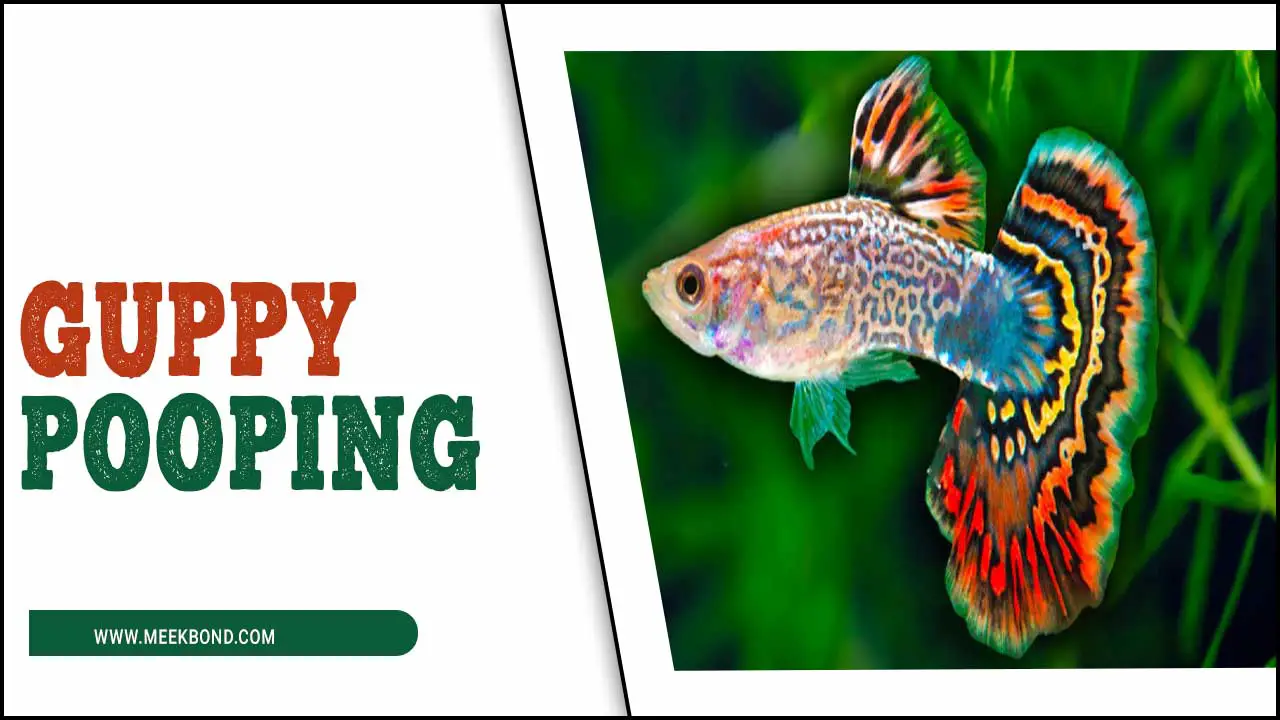
Why Guppy Pooping In The Aquriuam And How To Prevent Them
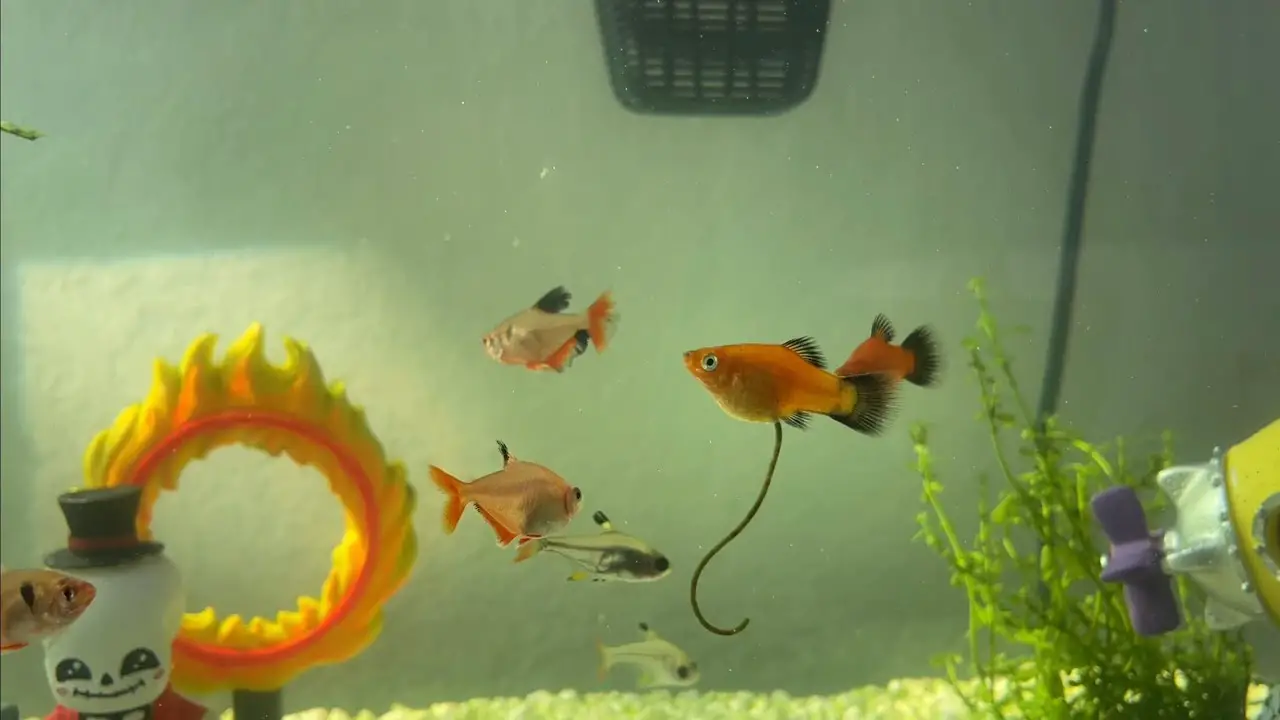
When you’re a fish owner, you might be wondering why your guppy pooping is pooping so much in the aquarium. Knowing why this is happening and how to prevent it is essential for maintaining the health of your aquarium and its inhabitants. Excessive waste in the tank can lead to poor water quality, which can cause harm or even death to your fish. It’s important to identify the cause of the increased waste, whether it’s due to overfeeding, poor diet, or illness.
Once you determine the reason, you can take steps to prevent it. For example, you can adjust the feeding schedule, provide a balanced diet, or quarantine sick fish. In addition, it’s important to regularly clean the aquarium and change the water to maintain a healthy environment for your fish.
Anatomy Of The Guppy Digestive System
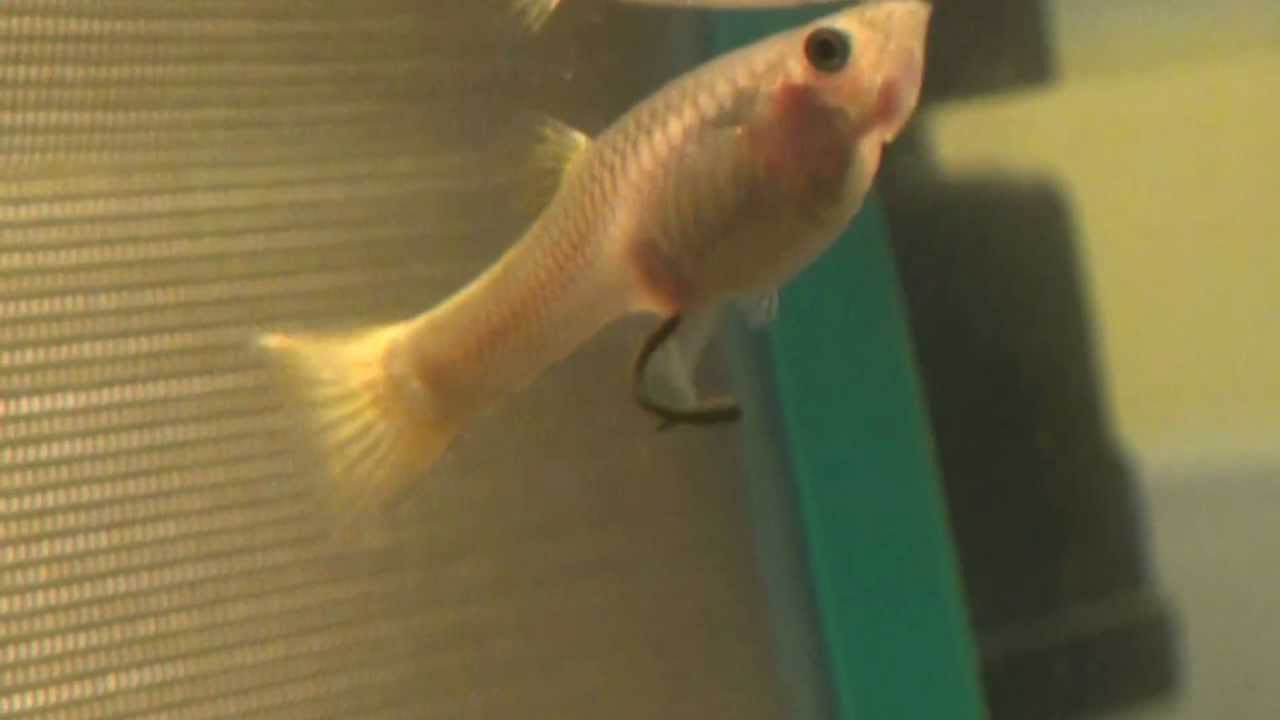
The anatomy of the guppy digestive system is a fascinating topic studied extensively in aquatic biology. Guppies are small freshwater fish with a unique and complex digestive system, allowing them to digest various foods efficiently. The digestive system of the guppy consists of several organs, including the mouth, pharynx, esophagus, stomach, intestine, pancreas, and liver.
Guppies use the teeth in their mouth to chew their food before swallowing. The pharynx then pushes the food down the esophagus and into the stomach, where digestive enzymes break it down. The intestine is where the majority of nutrient absorption takes place, with the help of the pancreas and liver
Understanding Guppy Digestion And Poop
It is important for any aquarium owner to have a thorough understanding of their fish’s digestion process and poop behavior. Guppies, in particular, are known to have a fast and efficient digestive system, which results in frequent pooping. While this is a natural process, excessive poop buildup can lead to poor water quality and cause stress to the fish.
Therefore, it is crucial to take measures to prevent them from pooping in the aquarium. One way to do this is by feeding them a balanced diet, with the right amount of protein and fiber. Overfeeding can result in excessive poop production, leading to an unhealthy environment for the fish. Another factor to consider is the size of the tank. Overcrowding can cause stress to the fish and lead to an increase in poop production.
Why Guppy Poop Is A Problem
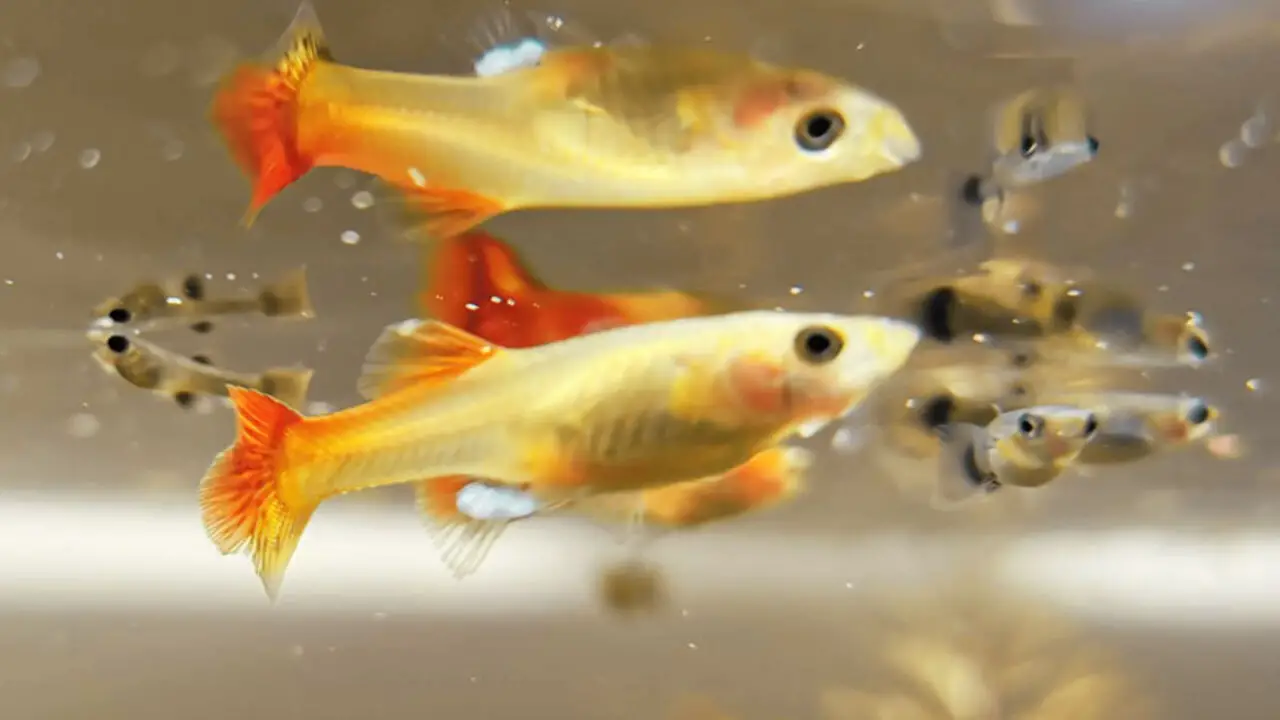
Guppy poop can be a major problem in aquariums, especially for those who are new to the hobby. There are several reasons why guppies tend to poop so much in their aquariums. Firstly, guppies have a high metabolism, which means that they eat a lot and excrete a lot. Secondly, if the aquarium is overpopulated or the filter is not working properly, the waste produced by the guppies can quickly build up and cause water quality issues.
Finally, if the guppies are stressed or unhealthy, they may produce more waste than usual. To prevent guppy poop from becoming a problem in your aquarium, there are several things you can do. Firstly, make sure that your aquarium is properly filtered and that the water is regularly changed. This will help to keep the water clean and prevent the buildup of waste.
Common Causes Of Excessive Guppy Poop
When you own a guppy aquarium, you may have noticed that your fish are pooping excessively. This is a common issue among guppy owners and can be caused by a variety of factors. One of the most common causes of excessive guppy poop is overfeeding. If you are feeding your fish too much or too often, their digestive systems may not be able to handle it, resulting in frequent bowel movements. Another common cause of excessive guppy poop is poor water quality.
If the water in your aquarium is dirty or has high levels of ammonia or nitrate, it can cause your fish to have digestive problems and produce more waste. Additionally, stress can also be a factor in excessive guppy poop. If your fish are feeling stressed or anxious, it can affect their digestive system and lead to more frequent bowel movements.
How To Prevent Excessive Guppy Poop
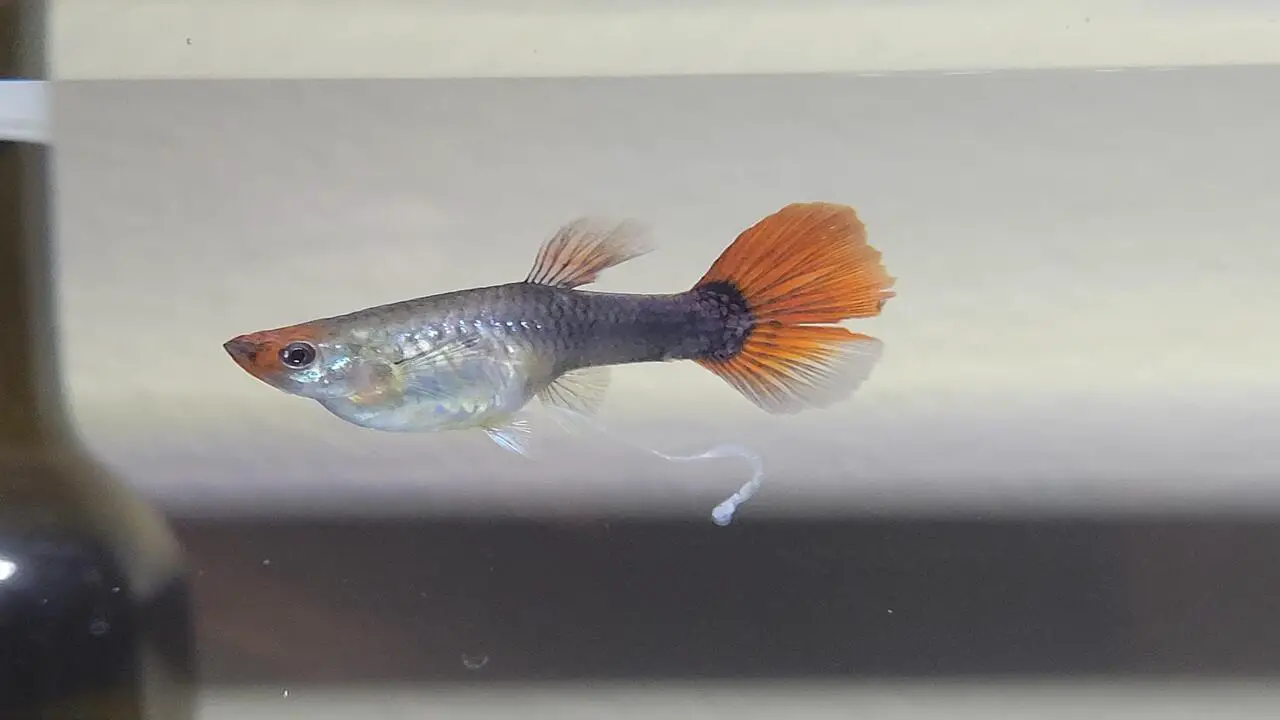
Guppies are popular freshwater aquarium fish that are known for their beautiful colors and playful behavior. However, one of the common issues that guppy owners face is excessive poop in the aquarium. Guppies are notorious for pooping frequently, which can quickly lead to dirty water and poor water quality. If you’re wondering why guppies are pooping excessively in your aquarium, there are several factors to consider. Overfeeding, poor water quality, and overcrowding are some common reasons for guppy poop.
To prevent excessive guppy poop, it’s essential to maintain good water quality, avoid overfeeding, and provide adequate space for your fish. Regular water changes, proper filtration, and a balanced diet can go a long way in reducing guppy poop. Avoid feeding your guppies more than they can consume in a few minutes and remove any excess food immediately. Also, consider reducing their feeding frequency to prevent overfeeding.
Identifying Symptoms Of Guppy Poop Overload
Guppy fish are popular freshwater fish species that are renowned for their vibrant colors, playful nature, and easy maintenance. However, like any other living creature, guppies can experience health issues that can lead to several problems, including poop overload. Identifying the symptoms of guppy poop overload is crucial to prevent any harm to your fish and maintain a healthy aquarium environment. Some of the symptoms of guppy poop overload include cloudy water, foul odor, and excess waste in the aquarium.
If you notice any of these symptoms, it’s time to take action to mitigate the problem. The primary reason for guppy-pooping in the aquarium is due to overfeeding or poor water quality. Overfeeding your guppies can lead to excess waste production, resulting in poop overload. Therefore, it’s essential to feed your guppies the right amount of food and ensure that the aquarium water is clean and well-filtered.
Water Quality Management
Prevention techniques are crucial when it comes to maintaining the health and well-being of aquatic life, especially in the case of aquariums. Water quality management is one of the most important prevention techniques that can be implemented to ensure the longevity of aquatic life. However, even with proper water quality management, issues may still arise, such as guppy-pooping in the aquarium.
This can be a cause for concern, as it can lead to a buildup of harmful waste and bacteria that can negatively impact the health of other aquatic life. The reasons behind guppy-pooping in the aquarium can be numerous, ranging from overfeeding to overcrowding. To prevent this issue, it is essential to maintain a clean and healthy environment for the guppies, and to feed them only as much as they need. Additionally, adding live plants to the aquarium can help absorb excess waste and keep the water clean.
Diet Management
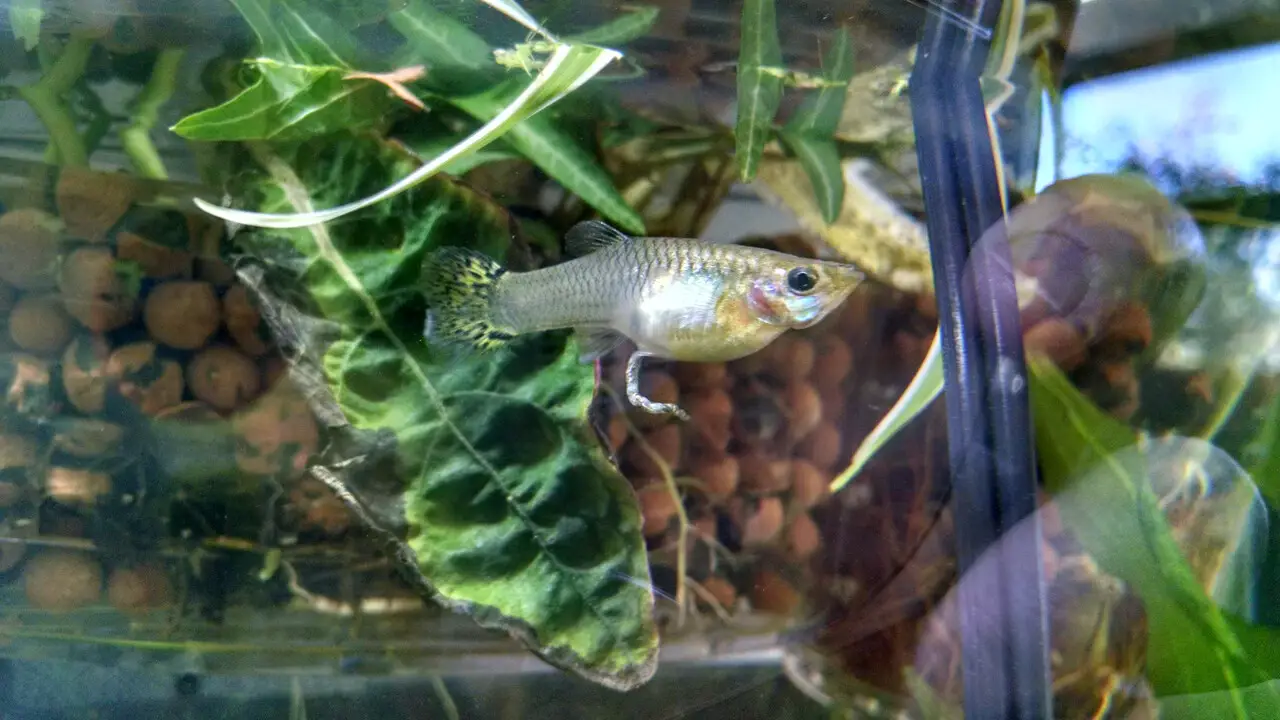
Prevention techniques are crucial in maintaining a healthy aquarium. One of the most important techniques is diet management. Fish have specific nutritional needs that must be met to keep them healthy. Overfeeding can lead to excess waste, which can cause a variety of problems in the aquarium, including foul water and algae growth. Moreover, poor diet can lead to health problems in fish, such as swim bladder disease.
Therefore, it is essential to provide fish with a balanced diet that meets their nutritional requirements while avoiding overfeeding. One common problem that aquarium owners face is guppy-pooping in the aquarium. This can be caused by a variety of factors, including overfeeding, poor water quality, and stress. To prevent this problem, it is important to ensure that the aquarium is properly maintained.
Tank Maintenance
Prevention techniques are essential for keeping tanks in optimal condition, and tank maintenance is at the top of the list. Regular maintenance is vital to ensure that tanks are safe, reliable, and efficient. Tank maintenance includes cleaning, inspection, and repair, and all of these tasks should be performed by experienced and qualified professionals. Proper tank maintenance helps prevent costly repairs, unexpected downtime, and dangerous accidents.
Regular tank inspections can identify issues early on, and cleaning the tanks prevents the buildup of dirt, debris, and contaminants that can lead to corrosion and other damage. When tanks are routinely maintained, they have a longer lifespan, and their performance is optimized. Additionally, the regular maintenance of tanks can help avoid environmental hazards, such as leaks and spills, which can cause damage to the environment, harm wildlife, and lead to costly fines.
Natural Treatment Options For Guppy Poop
Guppy poop is a common issue that aquarium owners face. Not only can it be unsightly, but it can also negatively impact water quality and harm the health of your fish. The good news is that there are natural treatment options available to help prevent excessive guppy poop in your aquarium. One effective approach is to incorporate live plants into your aquarium.
These plants can help absorb excess nutrients and waste, resulting in less poop from your guppies. Another option is to add snails or shrimp to your aquarium, as they can help clean up any excess waste and food particles. Additionally, maintaining proper feeding practices and not overfeeding your guppies can also help reduce the amount of poop in your aquarium. Regular water changes and proper filtration are also crucial in maintaining a healthy aquarium environment.
Artificial Treatment Options For Guppy Poop
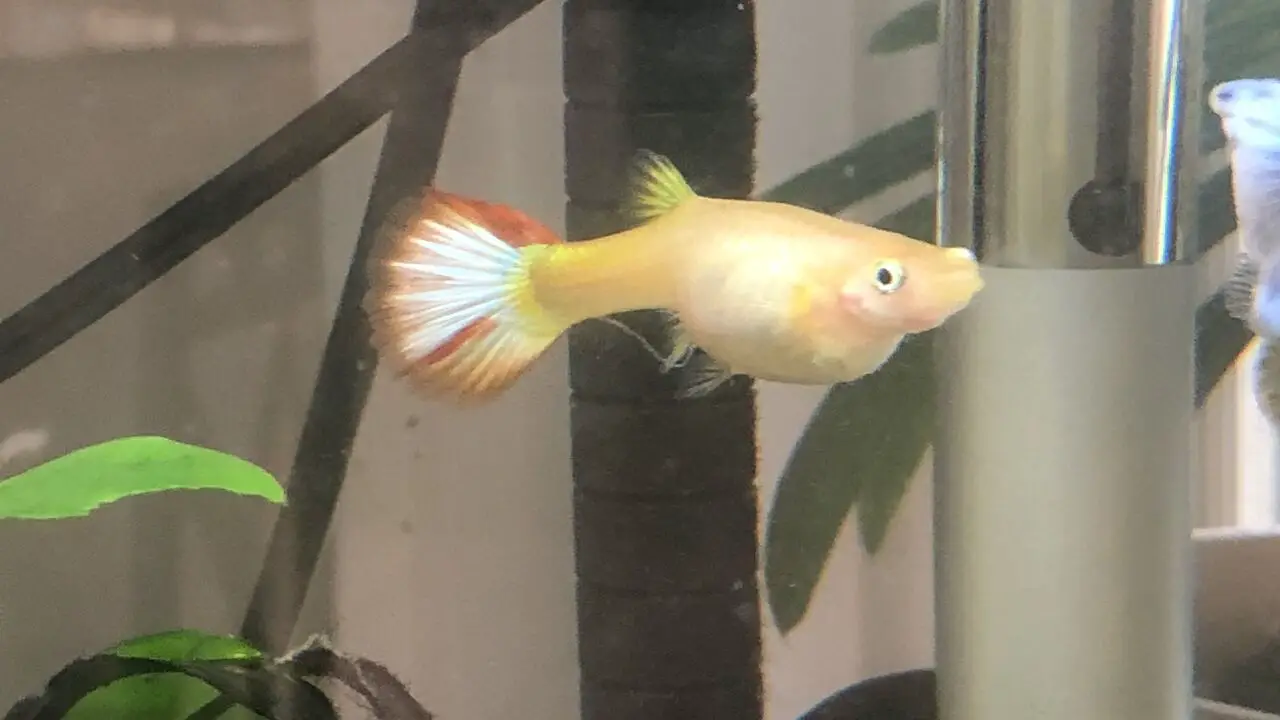
Guppy poop is a common problem for aquarium owners, but fortunately, there are a variety of treatment options available, including artificial methods. One such option is the use of chemical treatments that can break down the waste and prevent odor. Another effective solution is the installation of a filtration system that can remove the waste from the water and keep it clean.
Additionally, regular water changes and tank maintenance can help prevent excessive waste buildup and keep your aquarium healthy and clean. Preventing guppy poop in the first place is also important. One way to do this is by feeding your guppies a balanced diet and avoiding overfeeding.
This can help reduce the amount of waste produced and keep the water cleaner. Another helpful strategy is to provide your guppies with plenty of hiding spots and plants in the tank, which can help reduce stress and encourage natural behaviors.
Conclusion
After all, is said and done, it’s clear that guppies are not only cute and colorful but also quite the defecation machines. While it may not be the most glamorous topic, understanding guppy pooping habits is important for their health and well-being. So, let’s all give a round of applause to these little aquatic creatures and their impressive digestive systems. Guppy poop can even be beneficial to the aquarium ecosystem.
The waste produced by guppies serves as a source of nutrients for beneficial bacteria that help to break down toxins and maintain a healthy balance of chemicals in the water. However, excessive waste can also lead to poor water quality and potentially harm other fish in the tank.
FAQs
How Often Do Guppies Poop?
Guppies typically poop multiple times a day. The frequency can vary depending on their diet and overall health. As they are small fish, their poop is also relatively small and often not noticeable in the tank.
What Does Healthy Guppy Poop Look Like?
Healthy guppy poop usually looks like small, brown or greenish-brown pellets that sink to the bottom of the tank. The pellets should be firm and well-formed, indicating that the guppy is digesting its food properly and has a healthy digestive system.
Can The Color Or Consistency Of Guppy Poop Indicate Any Health Issues?
Yes, the color and consistency of guppy poop can indicate health issues. Healthy guppy poop should be brown or green and firm. If the poop is white or stringy, it could indicate internal parasites. If it is black or dark brown, it could indicate digestive issues or constipation.
How Do You Clean Up Guppy Poop In A Fish Tank?
To clean up guppy poop in a fish tank, you can use a gravel vacuum or siphon to remove debris from the substrate. You can also use a fish net to scoop out any visible pieces of poop. It’s important to perform regular water changes and maintain good water quality to prevent excess waste buildup in the tank.
Is It Normal For Guppies To Eat Their Own Poop?
Yes, it is normal for guppies to eat their own poop. This behavior is known as coprophagia and is common among many fish species. Guppies are known to eat their own poop to recycle nutrients and maintain a healthy gut microbiome. However, excessive coprophagia can indicate an unhealthy diet or poor water conditions in the aquarium.

Aquarium passion is all about connecting with the aquatic life and providing education to the public on the importance of these creatures. We showcase a wide variety of marine life through our exhibits as well as working with schools to provide unique learning opportunities for students of all ages.

